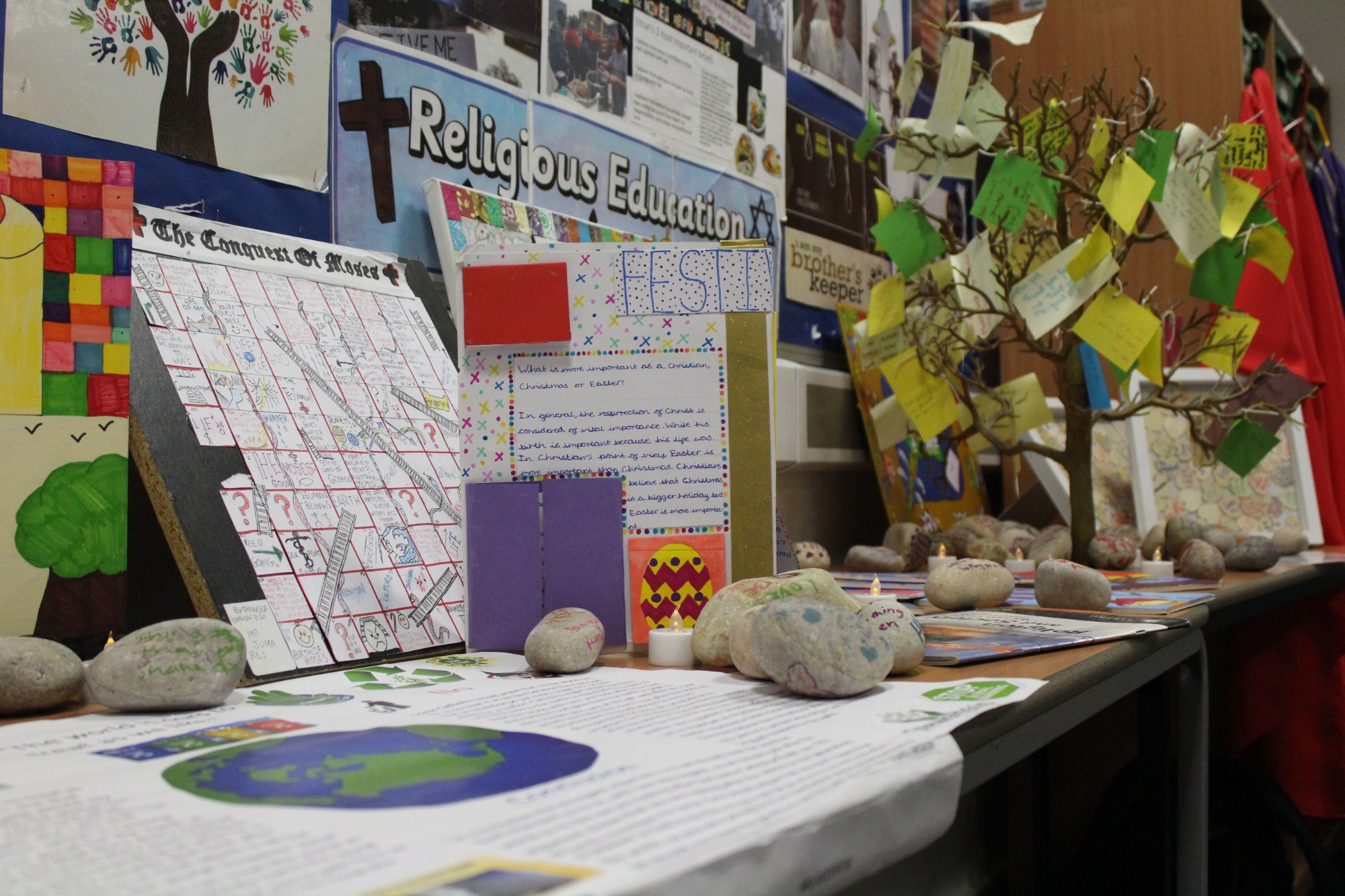Religious Education
Curriculum Intent
Inquisitive minds, loving hearts, flourishing souls.
Religious Education at St John’s Catholic Comprehensive school creates opportunities to cultivate engaged young people who are religiously literate and who have the knowledge, understanding and skills (appropriate to their age and capacity) to reflect spiritually, think ethically and theologically, and who are aware of the demands of religious commitment in everyday life. Through our curriculum and pedagogy, we support students in their journey through knowledge, understanding and insight to an ever deeper understanding of the Catholic faith. Alongside this endeavour, RE promotes what Pope Francis called a ‘culture of dialogue, encounter and mutual understanding, in a spirit of serenity and tolerance’ in the encounters with other faiths and non-religious views. There is an ambition that scholarship and respectful inquiry are characteristic of RE students at St John’s. Concepts and knowledge are presented in an engaging way so that students are open to learning more and knowing more about the content of religious belief and practices. The hope is they will know where they stand and why they stand there. The planned curriculum gives these opportunities for students to be inquisitive academics and students able to stand in the shoes of a person of faith. The exciting careers and skills that RE can support are highlighted in lessons so that students see the value of RE in careers and future roles.
The Religious Education curriculum promotes the fullness of each person alongside all the other subjects taught in the curriculum; spiritually, emotionally, morally and academically. Whilst there is a strong focus on scholarship in the curriculum (reflecting the RECD), it also supports the development of habits of prayer and reflection and creates safe spaces to explore the big questions in life concerning our meaning and purpose. As part of the focus on the moral and ethical teachings, particularly those taken from the scripture and the teaching of Christ in the gospels, the curriculum provides the necessary formation to teach young people how to use their voice constructively to address the inequalities in society and drive positive change inspired by catholic social teaching. Opening the human mind and heart to the ‘big questions’ of meaning, ethics and the meaning of existence is a lifelong journey which is supported through the planned curriculum, nurtured through the examination courses at KS4 and KS5 and strengthened by the ethos and culture of learning created in lessons.
Parents are permitted by law to request that their child is withdrawn from receiving all or part of religious education and/or collective worship provided by a school.
Please contact office@stj.kent.sch.uk if you would like any further information.

